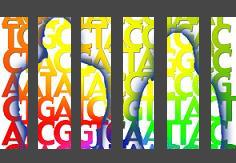
UC Berkeley sparked a bit of controversy earlier when they announced they would be giving 5000 incoming freshman the option of taking a simple genetic test. Now, the “Bring Your Genes to Cal” program has been curtailed by state regulators. As we discussed earlier, students were asked to provide DNA samples that would only be analyzed for three genes – those related to how humans process alcohol, lactose, and folic acid. About 600 or so have already participated. It was meant to be an interesting shared experience to spark discussion about personalized medicine. The California Department of Public Health decided, however, that the project wasn’t education but rather the rendering of medical services to students. As a result, UC Berkeley has decided to deny students access to the individual results of their tests. Instead, aggregated data will be presented. The personalized medicine discussion is going to be a lot less personal than planned. I understand that genetic testing is very far from an exact science at this point, but when are we going to stop being afraid of our own DNA?
Berkeley’s announcement comes on the heels of a long difficult year for personal genomics. The FDA has announced it will begin tight regulation of the industry, and already shut down one attempt at bringing personalized DNA test kits into pharmacies. But the modification to the university’s ground breaking program isn’t framed in terms of the genetic industry, it’s supposedly about labs.
The Clinical Laboratory Improvement Amendments (CLIA) are federal laws regulating medical diagnostic laboratories. Because the original intent of Bring Your Genes to Cal was to give students access to their own results, the California Department of Public Health decided that the university was in fact giving them viable medical information and thus had to fall under the strict guidelines of CLIA. Berkeley is using it’s own genotyping lab which is generally exempt from CLIA. As such, Berkeley was given the options of either sending the DNA out to commercial labs (way too expensive to be a viable option) or to deny students access to personalized results. According to online statements from Berkeley, the university is completely complying with the Department of Public Health’s decision, but laments the hamstringing of the program.
In fact, this may have been a decision the university saw coming. They had sent a letter earlier in the summer to the Department of Public Health outlining how they believed the Bring Your Genes to Cal program was exempt from statutes such as CLIA because it is educational in nature. Berkeley also argued that students were only receiving genetic results on genes that had little to no medical value. Clearly the Department of Public Health didn’t agree.
As cool as the Bring Your Genes to Cal idea could have been, there are bigger concerns here. The California Department of Health’s interpretation of federal and state law has the potential to limit genetic research in public universities throughout the state. Unless academic testing is given broad exemptions from commercial regulation it will be strangled by costs and bureaucracy. We can ill afford to limit public research into genetics, especially in a state and university system that has been one of the emerging leaders in genetic research.
Honestly this entire situation pisses me off. I understand federal and state regulators wanting to protect consumers from a branch of medicine that is still full of more questions than answers. As we’ve discussed before, personalized genomics has had its problems. At its best current DNA testing is mostly about broad generalizations at this point. The concrete recommendations it can make for healthcare are few and far in between. Clearly this case was about more than that. It was wrapped up in concerns about lab standards and medical services. Still, it sets a very poor tone for the future. After all, we’re talking about genes for lactose intolerance, not Alzheimer’s! What happens when we want to learn about the really important genetic factors in our lives? Even if Berkeley was going to give students insight into serious medical conditions, early studies indicate people take negative results from such tests very well. Humans are not so scared of knowledge as people seem to think. Our governments don’t need to protect us from our own DNA.
[image credit: modified from KQED.org]
[source: UC Berkeley “On the Same Page”]



